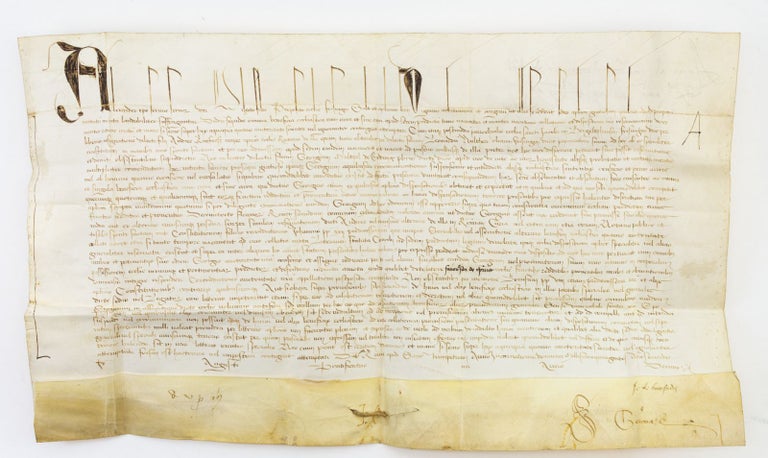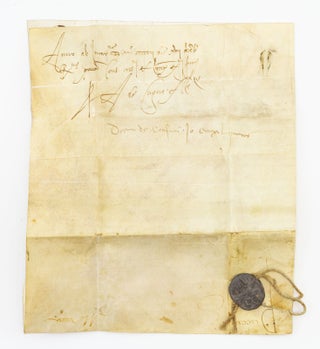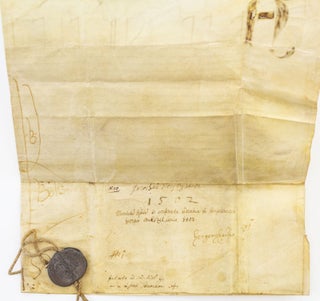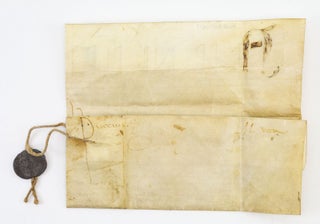A PAPAL MANDATE ISSUED TO THE OVERSEER OF A GERMAN CHURCH.
(Rome: 10 August 1502). 305 x 513 mm. (12 x 20 1/4"). Single column, 29 lines in a papal documentary script, plus signatures at bottom.
First line of text much larger and with elongated letters and calligraphic flourishes. WITH THE ORIGINAL LEAD SEAL AND HEMP TIES ATTACHED. Verso with several ink notations in different contemporary and later hands, recto with a long ink line in one margin and the letter "A" in the other, both by a later hand. ◆Several folds to vellum as usual, one-inch tear near where the hemp tie is attached, a couple of small holes in the large "A" at the top of the document, seal a little worn around edges and to the contours of the faces, but overall in excellent condition with no major issues, the vellum especially clean and bright.
Issued to the overseer of a church in Frilingen (probably modern Freilingen) in Germany, this bull orders the return of the vacated ecclesiastical seat and benefices of the church of St. James in Hergelzhausen, in the diocese of Frilingen, to two people. The church's rector, Andrew Kuefuelz[?] is to receive the position and things that once belonged to Leonard Walter, the procurator, while George Maltzel of Erding, a priest of the same church, is to receive the provisions and annual rents pertaining to the church. A member of the powerful Borgia family, Rodrigo Borgia (1431-1503) served as vice-chancellor to five successive popes before being elected to the papacy in 1492, taking the name Alexander VI. One of two Borgias to ascend to the papacy (the other was Callixtus III, who died after just three years as pope), Alexander held his own among a notorious family known for scandal. He led a sordid personal life--he was accused of participating in an orgy when he was a cardinal, and openly admitted to fathering several children by his mistresses--and his reign was characterized by acts of nepotism and promoting his own family's interests above all else--especially with matters related to foreign policy. However, he was also known as a patron of the arts (having commissioned work by Raphael, Michelangelo, and Pinturicchio), adopted a rather tolerant attitude toward Jews during this period, and succeeded in cracking down on crime in Rome. The Papal Bull takes its name from the lead seals, called "bullae," that were issued with official documents of the papacy as a way of ensuring their authenticity. Apart from the rare Solemn Privilege (like Innocent III's famous granting of England in 1214 to his involuntary vassal King John), there are three other categories of Papal Bulls: Simple Privileges (also called Solemn Letters), Letters of Grace (which confirm privileges and rights), and Mandates. The present item is of this final type, differentiated by its use of hemp ties as opposed to silk. (ST17895)
Price: $4,500.00




